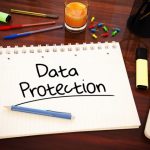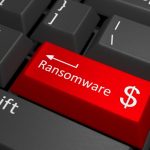Why businesses need to take vulnerability and risk management seriously [Q&A]

As businesses rely more on the cloud and virtual infrastructure, so the potential for both configuration errors and cyberattacks increases.
The pandemic has only made the problem worse and in many cases led to a loosening of security policy. What do organizations need to do to address the issue and protect their systems? We spoke to Tal Morgenstern, Vulcan Cyber CPO and co-founder, to find out.
The changing role of developers in the enterprise [Q&A]

Recent trends such as cloud, open-source software and low-code platforms have led to radical changes in the role of developers.
But what exactly is the effect of these changes and how can development teams prepare for them and take advantage of the opportunities they offer? We spoke to Bob Quillin, chief ecosystem officer at modernization platform vFunction, to find out.
How location technology and zero factor authentication could change the security landscape [Q&A]

The death of the password has been predicted for a long time, but although it's been augmented by things like multi-factor authentication and biometrics, it still clings to life.
However, businesses are looking for ways to eliminate fraud without impacting the customer experience. One way to do this is to use location technology to provide ‘zero factor’ authentication, allowing businesses to protect themselves and their customers without disrupting the customer experience.
The future of storage and how data volumes are driving change [Q&A]

There have been rapid increases in storage capacity in recent years, but the way the technology is used is largely unchanged. We still load data from storage into memory, process it, and write out any changes.
But as storage grows into petabytes this model will become harder to sustain. The future of storage will require abstraction layering and heterogeneous computing, allowing for scale, but reducing over-sophistication.
The changing face of fraud and how artificial intelligence is helping to counter it [Q&A]

Financial crime is on the increase and attackers must be stopped in their tracks. Financial service organizations new and old need to ensure they have the right technology in place to predict, detect and deter fraud, whilst ensuring minimal disruption to the customer journey.
We spoke to Martin Rehak, CEO of Resistant AI to find out how sophisticated artificial intelligence can detect known criminal practices and more importantly, predict the unknown emerging patterns of financial crime.
The impact of DDoS attacks on the enterprise [Q&A]

With the UK and US being amongst the top four most targeted nations for network DDoS attacks during the first half of 2021, this is clearly a problem that hasn't gone away amid all the pandemic-related news.
We spoke to David Elmaleh, senior product manager, Edge Services at Imperva. to discuss the impact DDoS attacks can have and why it's essential for organizations to monitor for anomalies relating to unexplained traffic spikes.
How banks are strengthening their cybersecurity posture [Q&A]

Cyberattacks and data breaches affect all kinds of organizations, but banks and financial services firms are at particular risk.
The shift to using mobile devices to carry out financial transactions has changed the threat landscape in recent years too. We spoke to Will LaSala, director of security solutions and security evangelist at OneSpan to find out more about what banks can do to bolster their security.
SIEM, SOAR and their role in improving cloud security [Q&A]

It's increasingly common for enterprise systems to be in the cloud rather than in-house, but that throws up a whole range of new challenges when it comes to securing them.
We spoke to Dario Forte, vice president and general manager, security orchestration, at cloud management specialist Sumo Logic to find out more about what's involved in cloud security and how automation can help.
Why quantum computing is a security threat and how to defend against it [Q&A]

Quantum computing offers incredible computing power and is set to transform many areas such as research. However, it also represents a threat to current security systems as cracking passwords and encryption keys becomes much easier.
So quantum is a security threat, but is there a solution to making systems safer? We spoke to David Williams, CEO of symmetric encryption specialist Arqit, to find out.
Why SaaS security needs to have a higher profile [Q&A]

Increasing numbers of apps are moving to an SaaS model and containers, but the security of these applications doesn't always get much attention.
We spoke to BetterCloud CEO, David Politis who believes that SaaS security is an area that businesses need to take much more seriously.
The business case for zero trust network access [Q&A]

As the business network landscape has become more complex, many organizations are turning to zero trust network access (ZTNA) in order to boost their security. It's also replacing or supplementing older technologies like VPN.
We spoke to Kurt Glazemakers, CTO at secure access specialist Appgate who believes that there is a solid business case for ZTNA as well as a security one.
Data privacy and consent in the age of CCPA, GDPR and impending federal privacy law [Q&A]

When it comes to consent and data privacy, the rise of regulations like the General Data Protection Regulation (GDPR), along with increased consumer awareness of data infractions and breaches, has raised the stakes.
When the California Consumer Privacy Act (CCPA) passed in 2018, many states began following California's lead. Currently, more than 30 states have comprehensive privacy bills that are close to passing or in early stages of being drafted.
Why changing legislation means companies need to rethink their data protection [Q&A]

Businesses have embraced the use of data to drive decisions and digital transformation. In many cases consumers are happy to have their details captured too, as long as they benefit from it.
But as more and more countries introduce privacy and data protection legislation, and as California clarifies some of its cookie-based tracking definitions, and increases enforcement of both intentional and unintentional violations under CCPA, enterprises need to tighten up their data handling.
The threat of ransomware through Active Directory [Q&A]

Ransomware has hit the headlines in recent months with attacks on infrastructure and supply chains closing down operations. But ransomware has the potential to be even more devastating if it’s spread via Active Directory, as demonstrated by the SolarWinds attack.
We talked to Derek Melber, chief technology and security strategist of Tenable to find out more about AD attacks and how to combat them.
Why enterprises need to make the shift to DevSecOps now [Q&A]
Recent Headlines
Most Commented Stories
© 1998-2025 BetaNews, Inc. All Rights Reserved. About Us - Privacy Policy - Cookie Policy - Sitemap.
